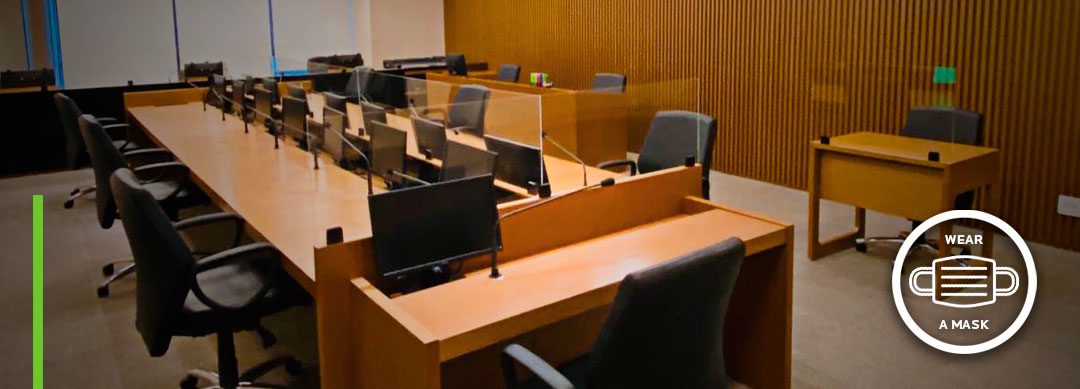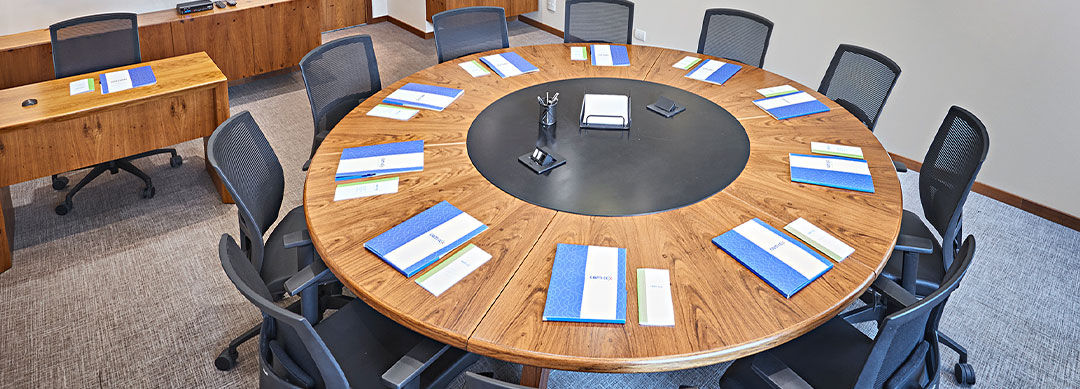New CAM-CCBC resolution opens the possibility of holding face-to-face hearings in exceptional cases
By Sérgio Siscaro
Throughout 2020, CAM-CCBC successfully adapted its face-to-face proceedings to the digital format, incorporating technological tools that allowed the continuity of arbitration and mediation processes. This way, the Center ensured the safety of the involved parties and their employees, taking all necessary measures to prevent the spread of the new coronavirus.
However, some arbitrations administered by the Center required, for specific reasons of each one, that one of the most important acts of the proceedings, the hearing, was conducted in the conventional format. And in order to address these exceptional cases, and others that eventually arise and cannot be conducted remotely, CAM-CCBC is now allowing the possibility of holding face-to-face hearings.
Fully aligned with the guidelines of government authorities, the Administrative Resolution No. 43 of October 5, 2020 establishes that, in specific cases, face-to-face meetings may be held (see the full resolution on https://ccbc.org.br/cam-ccbc-centro-arbitragem-mediacao/en/ar-43-2020-resumption-of-physical-hearings/). Such cases include, according to the resolution text, “the impossibility of holding a hearing in virtual format, the justified refusal of the parties to participate in a remote hearing, damage to the parties and to the procedure and/or urgency regarding its non-realization”.
The protocol defined by CAM-CCBC includes a number of safety measures – such as maintaining distance between people, reducing the number of occupants of the room where the meeting is held, installing acrylic barriers, interrupting every two hours for cleaning the premises, individual distribution of food and beverages, and, of course, the mandatory use of masks.
In addition, no one will be able to enter the Center premises without first having the temperature properly measured. The compliance with the security measures established by CAM-CCBC is the condition for the permanence of any of the participants in the areas where the hearings will be held.
Hybrid model
According to CAM-CCBC General Secretary, Patricia Kobayashi, all arbitration proceedings had their continuity guaranteed by the use of virtual platforms. However, some of them – on which the Arbitral Tribunal had determined the need to hold face-to-face hearings – were temporarily suspended. “Now, with the guidelines of the public authorities defining some relaxation in isolation, we have been able to reestablish the face-to-face format of the hearings, on an exceptional character, for those cases where it is not really possible, for one reason or another, to adopt the remote model.” She recalls that even if they are held in fully controlled environments, these hearings will also use distance communication tools, making them, in practice, hybrid.
The Secretariat Coordinator of the Center, Sílvia Salatino, adds that the adoption of special protocols for the realization of these exceptional face-to-face hearings includes, in addition to the various health measures (summarized in a video produced by CAM-CCBC and available on https://youtu.be/KcgWCPxi1TM), the elimination of the signature in the attendance statement. “It was a paper that circulated, so we decided to replace it with the reading of the minutes and the agreement of those present. As everything will be recorded, this way there is a documentation of attendance, avoiding the circulation of a paper from hand to hand”, she says. According to her, the Center will contribute with its entire structure in the organization of hearings in this face-to-face model, in order not to cause unnecessary agglomerations or movements.
“For the face-to-face hearing taking place, it is necessary that the involved parties and the Arbitral Tribunal agree that this is essential. But the rule remains to hold remote hearings”, adds the Secretariat Coordinator, Cristiane Gertel.
She also points out that, with the good performance of distance communication tools, the resumption of face-to-face activities in the previous model should only occur if the health situation changes. “There is always the possibility of returning to a lockdown; for this reason, we will always follow what the government authorities decide. If the situation changes, we change together”, concludes Salatino.





